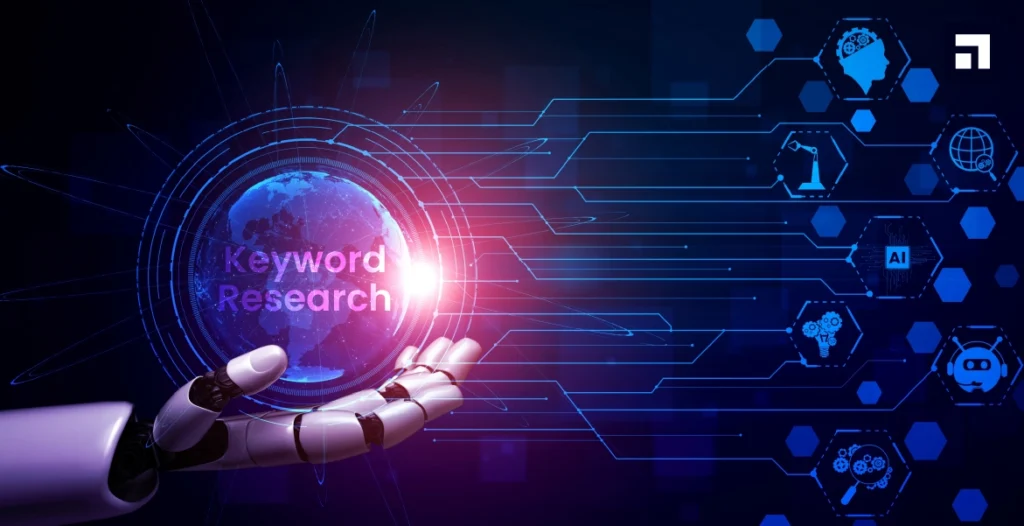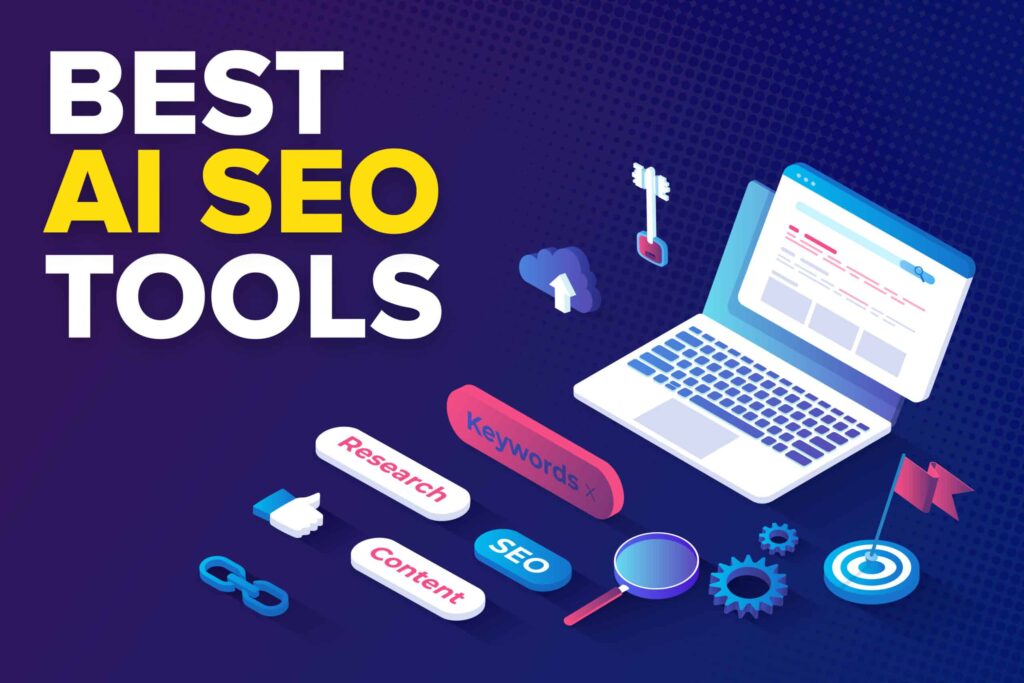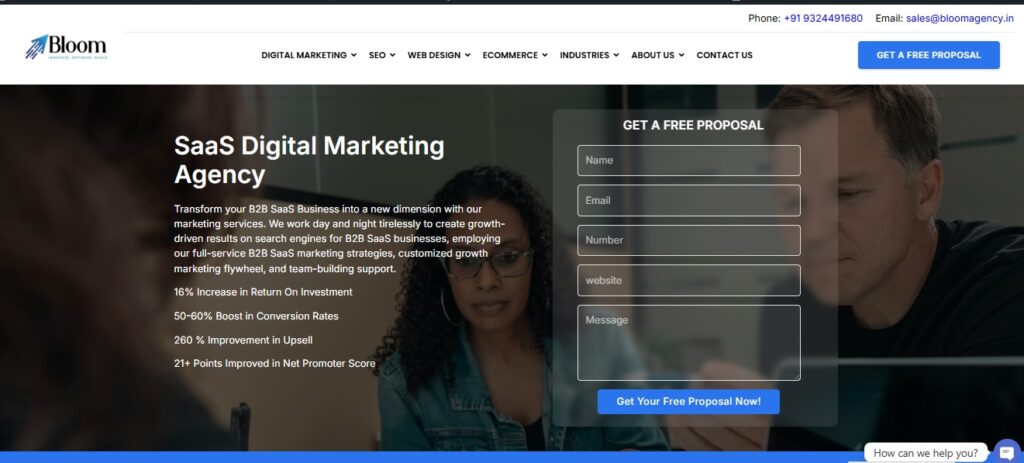Artificial Intelligence (AI) has fast become a part of digital marketing, especially in areas like Search Engine Optimization (SEO). As the digital world evolves, the impact of AI on SEO cannot be denied. The fact that AI is revolutionizing the way content is ranked by search engines, how intent is understood from users, and how websites are optimized for maximum visibility is transforming the SEO landscape. This blog will candidly look at how AI is transforming the face of search and SEO, what this is in conflict with, and exactly how businesses can adjust their ways to take advantage of this new potential.
Table of Contents
ToggleThe Role of AI in Search: A New Era

In the traditional search, the algorithms created by humans were the primary tools used by search engines to understand queries and rank websites. Although these algorithms were robust, they could not completely understand the nuances of human language, especially for long-tail queries or conversational search patterns. With AI technologies advancing, the intent behind a search is understood by search engines better than ever.
Artificial intelligence technologies such as Natural Language Processing and machine learning will allow search engines to perform better on contextual and semantics-based understanding of the search query itself. Google’s BERT algorithm is one such thing that Google came up to understand the context of behind words used in a query in a particular sense, beyond keywords. This has made it easier for Google to rank pages that best match the intent of the searcher rather than just ranking based on keyword frequency.
Besides, AI enables search engines to be continuously learning and adapting to the behavior of users. Each time a user engages with a search engine, AI systems track these actions, learn from them, and change the search results. This results in a more personalized search experience where users are likely to find the content they want.
AI’s Impact on SEO: A Double-Edged Sword

AI is bringing many positives to SEO, but challenges are also being presented before the SEO professionals. There is one side where AI can help in tasks which were time-consuming or complicated previously, and thus, can make SEO efforts more efficient. And on the other hand, AI also means that SEO experts have to be more adaptable and updated on the latest AI-driven changes.
Here’s how AI is influencing SEO:
Content Optimization
One of the most significant areas where AI has made an impact has been in content optimization, where AI tools can analyze user intent and search queries to point out relevant topics for a content creation process. Most of these tools, namely Clearscope, Surfer SEO, and MarketMuse, use AI to assess what top-ranking pages are featuring and recommend the most relevant keywords, topics, and subtopics to include in the content.
These AI-based tools enable content producers to generate high-quality, comprehensive, and user intent-driven articles. AI can also improve readability and tone to reach the target audience.
Voice Search and Conversational SEO
With the advent of smart speakers, voice assistants like Siri, Alexa, and Google Assistant have gained wide popularity for web searches. It differs fundamentally from typed search, which is often used with longer phrases and more conversational language. AI has to play a very significant role in understanding and responding to voice queries.
In optimizing for voice search, SEO professionals are bound to adjust their content approach. Voice search algorithms with AI tend to be more conversational in line with natural language processing, implying that content should be approached as conversational. One is to understand how humans query questions verbally rather than just typing keywords into search engines to optimize for voice searches.
AI-Driven Analytics and Insights
Another revolution that AI brings is to SEO analytics. Traditionally, the performance of websites was followed using tools like Google Analytics and Search Console, where changes were made based on their performance. AI is the next level in advanced analysis and insights.
Businesses can track user behavior, predict trends, and even identify potential SEO issues before they become problems using AI tools. AI can help businesses analyze backlinks, keywords, traffic sources, and other crucial SEO metrics to uncover new opportunities for optimization. For instance, tools like SEMrush and Ahrefs have integrated AI to provide users with deeper insights into keyword rankings, competitor strategies, and backlink profiles.
Automation of Routine Tasks
The more popular AI-driven automation is in SEO, the more routine tasks are automated by AI, even those tasks that previously were laborious, such as website audits, meta tag optimization, and keyword tracking. That leaves the professional SEO person free to focus on strategic work, such as content creation, link building, and market analysis.
Tools like Moz and RankMath can audit your website automatically, identify SEO issues, and even give suggestions for fixing those issues. These platforms streamline SEO workflows so that businesses can save time and improve efficiency.
Challenges AI Brings to SEO

While AI brings many benefits, it’s important to acknowledge the challenges it also presents. SEO professionals must constantly adapt to AI’s evolving capabilities to stay competitive. Here are some key challenges to consider:
Increased Complexity of Algorithms
Further advance search engine algorithms, the more technical in knowing how to optimize is involved. For instance, Google consistently refreshes its algorithm to make their results search better, and one of the key factors which this refreshment is powered by is AI. Consequently, SEO experts have a challenge of keeping up-to-date with such changes and following the new ranking criteria with one’s websites.
1. Changing Search Intention
AI can now more precisely analyze search intent, but that also means that search engines are getting better at understanding the subtle nuances in queries. As AI continues to evolve, it may be even more challenging for businesses to predict exactly how their content will rank. Therefore, it is important for businesses to keep testing and refining their SEO strategies to stay ahead.
2. Content Saturation
This can mean a lot of content being churned out at scale, thanks to AI-powered tools being easier to use, but on the flip side, it’s also filling up the web with more and more content. This results in a higher competition rate for rankings and makes search results even more challenging to appear in for businesses.
3. Bias of AI
One of the criticisms raised is that AI-powered algorithms allow bias to be perpetuated, as AI learns from existing data. Because data used to train these systems are biased, the outputs would reflect those biases too, which could affect even how search engine rankings could present content to users. In this regard, businesses ought to be aware of its limitation and ensure that their SEOs will not inadvertently perpetuate damaging biases.
How to Adapt to AI in SEO

To succeed in an AI-driven SEO world, businesses need to adjust their strategies. Here are some ways to adapt:
1. Focus on User Experience
User experience (UX) has long been important to SEO, and now that AI is everywhere, it’s critical. AI-powered search engines focus on content that offers UX as smooth and engaging an experience as possible. A page that loads in little time, is mobile-responsive, and easy to access and navigate should be optimized accordingly. No longer an added choice but a must.
2. Embrace AI-Driven Tools
SEO professionals should use AI-powered tools to streamline their workflows. AI tools can help with everything from keyword research and content creation to link building and analytics. Adopting these tools can give a competitive advantage and ensure that SEO efforts are data-driven and optimized for AI algorithms.
3. Create high-quality, intent-focused content
With the ability of AI to understand deep search intent, businesses focus on creating comprehensive and meaningful content that answers users’ questions while staying valuable, informative, and structured with user intent.
4. Stay Updated on Algorithm Changes
Finally, SEO professionals need to be informed of the changes in algorithms by AI. This means being on the lookout for updates from search engines like Google and adjusting the SEO strategy when necessary. Understanding how AI affects ranking factors is the key to maintaining a good online presence.
Conclusion: A New SEO Frontier
Indeed, AI will transform the face of search and SEO. Its benefits allow businesses to discover new optimization channels of their contents, understand users’ behaviors better, and reduce the friction of SEO processes. Nonetheless, like other emerging technologies, it creates problems and necessitates changes in response to these emerging challenges.
At the end, AI is not a replacement but a tool that makes ability better at achieving more considerable results. Embracing AI, staying updated, and changing over time can make businesses position themselves for success in future search.
About Us
Want to up-scale your space in the highly competitive market ? With Bloom, you get Ecommerce SEO Services tailored exactly for you to get your business ranked higher and attract more local leads that will convert into more sales. We provide different SEO solution such as Local SEO ,Technical SEO ,Enterprise SEO ,Franchicse SEO ,WordPress SEO , Amazon SEO etc.
At Bloom Digital Marketing Agency, we specialize in delivering whole web design services in India to meet diverse business needs. From their great website design to optimizing your websites for search engines, our expertise will take your brand to the maximum level possible online.








Rahul M.
B2B Service Provider